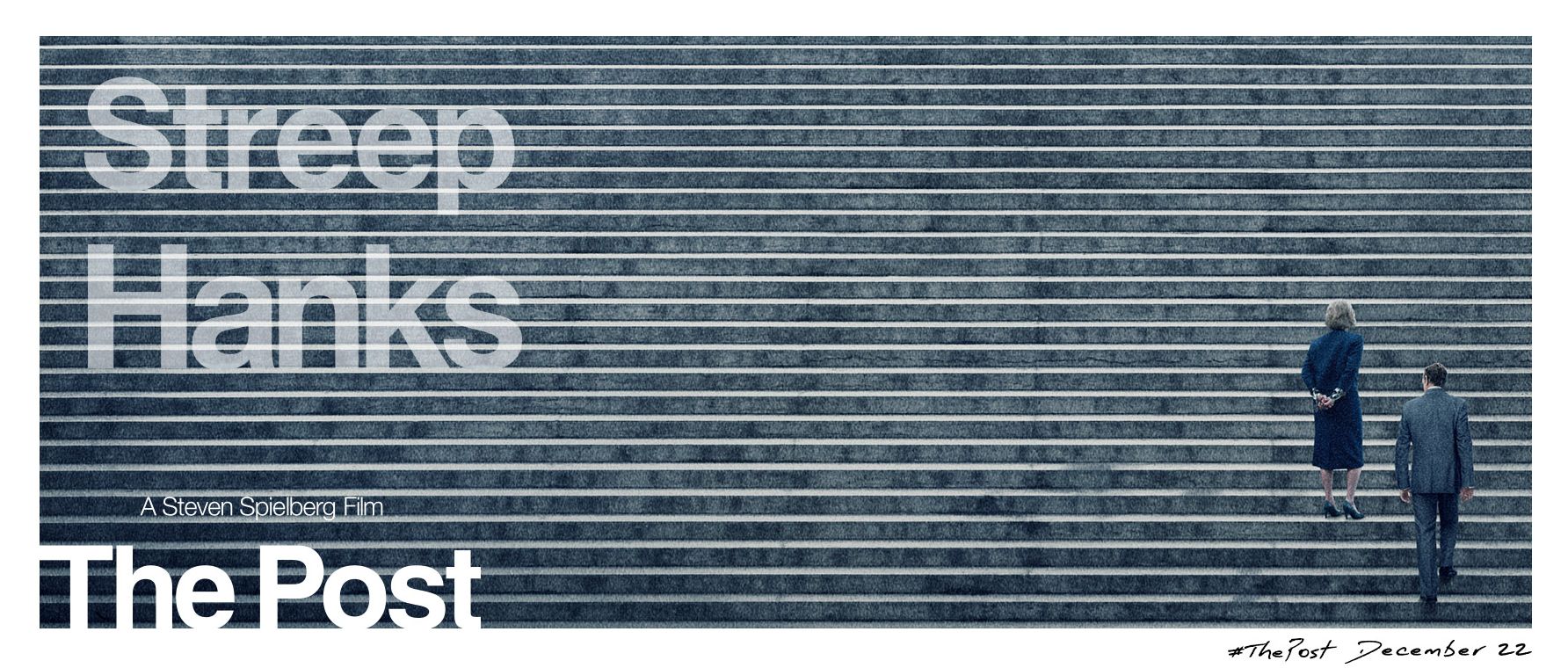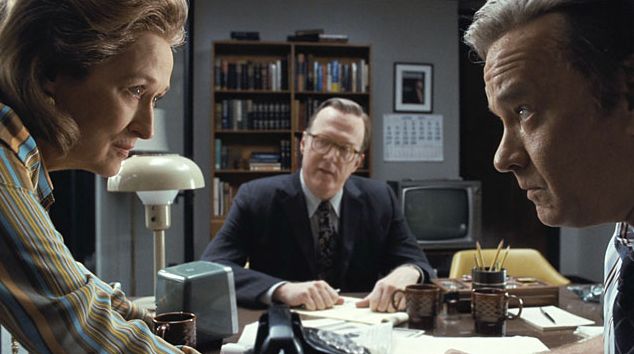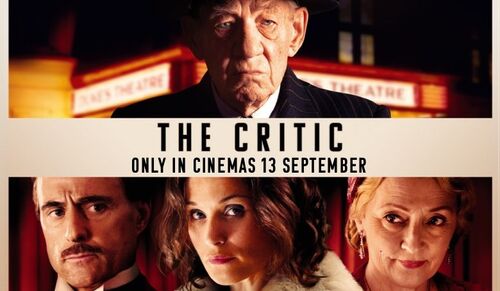
'The Post' Review
 It’s almost unfair. Hanks, Streep, Spielberg, Williams all together on the same film? Arguably, these four make-up the Mount Rushmore of modern cinema. Well, here’s the good news for fans and the bad news for every other movie competing this Awards Season: “The Post” is even better than the sum of its parts.
It’s almost unfair. Hanks, Streep, Spielberg, Williams all together on the same film? Arguably, these four make-up the Mount Rushmore of modern cinema. Well, here’s the good news for fans and the bad news for every other movie competing this Awards Season: “The Post” is even better than the sum of its parts.
It’s 1971. The Washington Post is still a relatively minor, local newspaper. Katharine Graham (played by Meryl Streep) is its publisher, a position she wasn’t supposed to have. Her father once ran the paper, then passed it on to her husband. Upon his death, it fell into her lap. But she’s much more comfortable as a D.C. socialite not a newspaper mogul. And as a women in that male-dominated industry she delegates control to the men around her.
Ben Bradlee (played by Hanks) is the paper’s editor. He’s a competitive, no-nonsense newsman, dedicated to good reporting, his staff and his family. Bradlee was previously played by Jason Robards in 1976’s classic “All the President’s Men” – about the Washington Post and the Watergate scandal.
A worthy companion to “All the President’s Men”, “The Post” takes us inside the biggest journalistic story prior to Watergate: the leaking of the Pentagon Papers, the top-secret documents that revealed decades of lies and deceit related to the United States’ involvement in the Vietnam War over the span of four Presidential administrations.
For Bradlee, this is a major story that needs to be told, and it could elevate his newspaper into the big leagues. But publishing the classified information could come with a price – putting careers, lives and the future of the paper in jeopardy. And that decision – whether or not to run the “story of a lifetime” rests with one person – the overwhelmed and, some believe, unqualified Graham.

Josh Singer, who co-wrote 2015’s Oscar-winning “Spotlight”, about The Boston Globe’s investigation into the Catholic church child sexual abuse scandal, is back as co-writer on “The Post”, and he tops his own work. This script is even more gripping, delivering an adrenaline rush with its final act – one I haven’t really felt since 2012’s “Argo”.
Spielberg handles the parallel stories of Bradlee’s fight for freedom of the press, and Graham’s internal struggle to do what’s right, perfectly. This is the first time Hanks and Streep have shared the screen and they’re both sensational. It was impossible not to smile during their first one-on-one exchange, just admiring these two masters at work. Hanks is honest, funny and poignant. This may be his best performance of the century.
As for Streep, she normally plays “showy” characters, who eventually reveal their more vulnerable sides. Here, as the only female newspaper publisher in America, her character is vulnerable and unsure of herself at the start. But we get to see her grow in strength and confidence as the events around her demand it. So many years. So many roles. Streep can still blow you away.
The supporting cast is headline worthy: Bob Odenkirk is excellent as Post reporter Ben Bagdikian, who breaks the story. Sarah Paulson, in a small role as Bradlee’s wife, is at the center of the film’s pivotal scene. And John Williams’ score is terrific, providing the appropriate bounce and flare.
“The Post” is a good old-fashioned, clean drama that goes beyond simply portraying a key moment in our nation’s history. It’s much bigger than that. It’s about universal ideals: journalistic freedoms, the rights of citizens to know the truth about decisions being made by their leaders and, most importantly, the need for women to enjoy opportunities and equal treatment in the workplace and in society. All issues as relevant today as they were in the 1970s.
On top of all of this is the fact that principal photography on “The Post” began on May 30 – of this year! To make a film THIS GOOD, THIS FAST is almost unheard of – and a truly incredible accomplishment.


